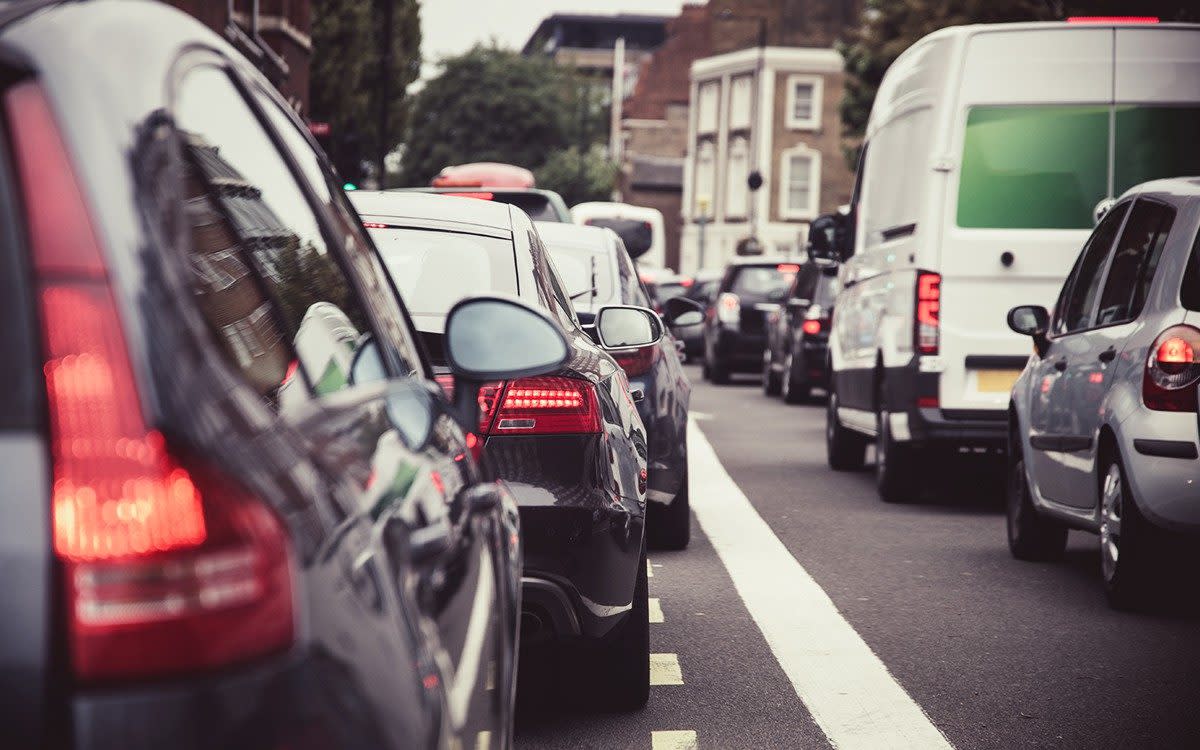Smart motorways and roadworks take traffic to its slowest speed for decade

Average speeds on Britain’s roads are at their slowest for almost a decade as a result of disruption caused by roadworks and smart motorways.
Across the nation, speeds on motorways and major A-roads dropped to an average of 57mph in 2023, official statistics have revealed.
This is 3 per cent slower than 2019’s average of 57.9mph across National Highways’ Strategic Road Network, despite there being fewer cars, vans and lorries on the roads now than before the Covid-19 pandemic.
The RAC described the statistics as “very concerning” and said roadworks and smart motorways were probably to blame for the confusing mix of reduced traffic and slower average speeds.
Simon Williams, the motor group’s head of roads policy, said: “It’s very concerning to see delays on our most important roads increasing to above pre-pandemic levels and average speeds dropping.
“With more people than ever working from home at least part of the week and no growth in the number of cars on the road since then, we’re struggling to see what the cause can be other than roadworks.”
Smart motorways, where the hard shoulder has been converted into a live running lane for traffic, make up about 400 miles of the UK’s 2,300 miles of motorway.
Rishi Sunak, the Prime Minister, halted the expansion of the controversial scheme in 2023, saving about £1 billion. Since then, National Highways has committed to building an extra 153 emergency laybys for stricken vehicles to safely pull over into.
Meanwhile the AA highlighted that motorists on A-roads were facing delays so severe that they now waste a full minute stuck in traffic jams per mile driven.
Luke Bosdet, an AA spokesman, said: “The inflexibility and cost of public transport, not to mention strikes and people being forced further out of town to find affordable housing, are reasons that only scrape the surface of why commuters and other travellers are prepared to sit in cars and watch their time disappear.”
In 2011 cars were averaging 68mph on dual carriageways and 69mph on motorways, according to Department for Transport (DfT) statistics.
Official counting methods changed in 2015 when the combined average for cars, vans and lorries on motorways and A-roads was given as 58.7mph.
There were 2.2 million street and roadworks carried out in England between 2022 and 2023, which the Government says is costing the economy £4 billion thanks to traffic jams holding up motorists and delivery drivers.

An official measure of roadworks disruption on motorways and A-roads maintained by National Highways shows a one per cent increase in related delays and other problems between 2022 and 2023.
Mr Williams added that National Highways was “retrofitting emergency refuge areas” to smart motorways with “limited capacity on these key routes”.
DfT figures show the amount of traffic on Britain’s motorways in the year to the end of September 2023 was 1.4 per cent below 2019 levels, with traffic on A-roads down 3.5 per cent.
So far in 2024 commuters are spending almost 5 per cent more time in morning traffic and 7.5 per cent more in the evenings thanks to traffic jams, the AA said.
National Highways said more vans and lorries on the roads were partly responsible for average speeds declining and delays increasing.
A spokesman said: “We know delays are frustrating but a number of factors contribute to slower-moving traffic. The make-up of vehicles on the road is changing with more HGVs and larger vehicles together with fewer cars. This brings average speeds down.”
The DfT said: “This Government backs drivers, which is why we’re getting on with our plan to invest over £24 billion into our roads to reduce congestion, improve road safety and grow the economy.”

